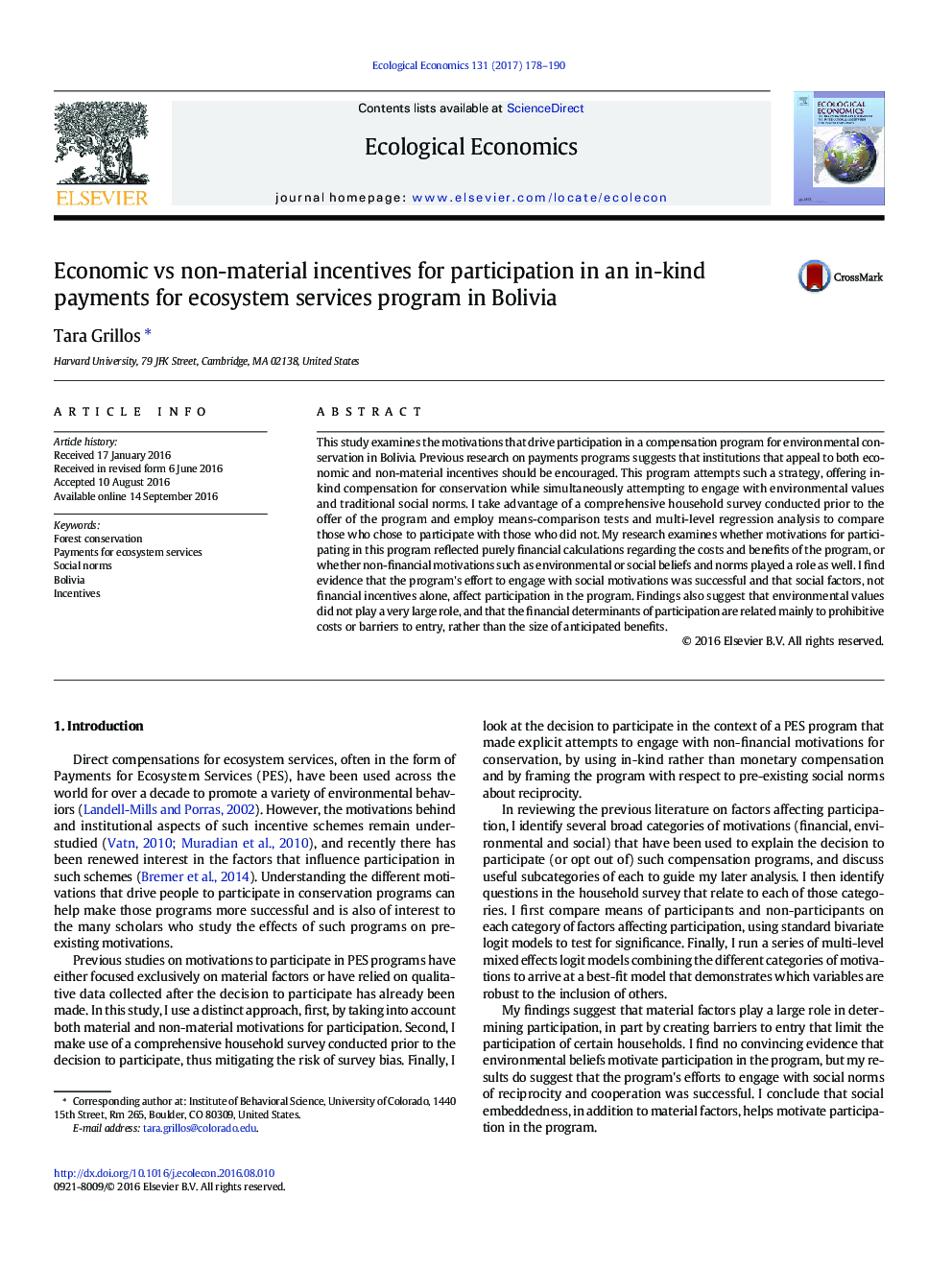| Article ID | Journal | Published Year | Pages | File Type |
|---|---|---|---|---|
| 5048867 | Ecological Economics | 2017 | 13 Pages |
â¢Social embeddedness is a strong predictor of participation in the program.â¢Barriers to entry favor the wealthy, with implications for long-term equity.â¢Environmental values do not play a large role in the decision to participate.
This study examines the motivations that drive participation in a compensation program for environmental conservation in Bolivia. Previous research on payments programs suggests that institutions that appeal to both economic and non-material incentives should be encouraged. This program attempts such a strategy, offering in-kind compensation for conservation while simultaneously attempting to engage with environmental values and traditional social norms. I take advantage of a comprehensive household survey conducted prior to the offer of the program and employ means-comparison tests and multi-level regression analysis to compare those who chose to participate with those who did not. My research examines whether motivations for participating in this program reflected purely financial calculations regarding the costs and benefits of the program, or whether non-financial motivations such as environmental or social beliefs and norms played a role as well. I find evidence that the program's effort to engage with social motivations was successful and that social factors, not financial incentives alone, affect participation in the program. Findings also suggest that environmental values did not play a very large role, and that the financial determinants of participation are related mainly to prohibitive costs or barriers to entry, rather than the size of anticipated benefits.
